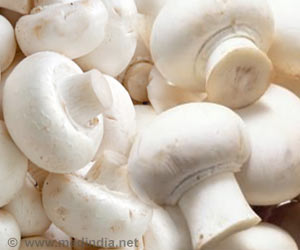U.S. based scientists are underrepresented as authors of articles compared to scientists working in other countries on the potential role of innate variation in athletic performance that are published in peer-reviewed science journals.

The research, conducted by Michael P. Lombardo, professor of biology, and Shadie Emiah, a Grand Valley State graduate student, used information about the authors of 290 articles published in peer-reviewed science journals between 2000 and 2012 and compared the proportions of authors with U.S. addresses with those that listed addresses elsewhere that studied the relationships between athletic performance and prenatal exposure to androgens, as indicated by the ratio between the length of the forefinger and ring-finger, and genetic variation in genes for angiotensin converting enzyme, α-actinin-3, and myostatin, traits that are often associated with athletic performance.
The main result was that authors with U.S. addresses were disproportionately underrepresented on papers about the role of innate variation in these traits and athletic performance. The authors also searched NIH and NSF databases for grant proposals solicited or funded from 2000-2012 to determine if the proportion of authors that listed U.S. addresses was associated with funding patterns. NIH did not solicit grant proposals designed to examine these factors in the context of athletic performance and neither NIH nor NSF funded grants designed to directly study these topics.
Lombardo and Emiah attribute the underrepresentation to the combined effects of a lack of government funding and the fact that historical events have produced an ideologically charged atmosphere in the U.S. surrounding the potential influences of innate variation on performance which has led to U.S.-based scientists avoiding studying this controversial topic.
Lombardo said: "Regardless of the ultimate reasons why U.S.-based scientists don't often publish articles about the potential role of innate variation on athletic performance, they are failing to maintain pace with their colleagues elsewhere in the illumination of the factors that influence athletic performance because they fail to study possible innate correlates of performance. As a consequence, not only will the scientific study of sport by U.S.-based scientists suffer, but so will the scientific study of the biological and environmental correlates of physical activity, fitness and general health."
Source-Eurekalert











